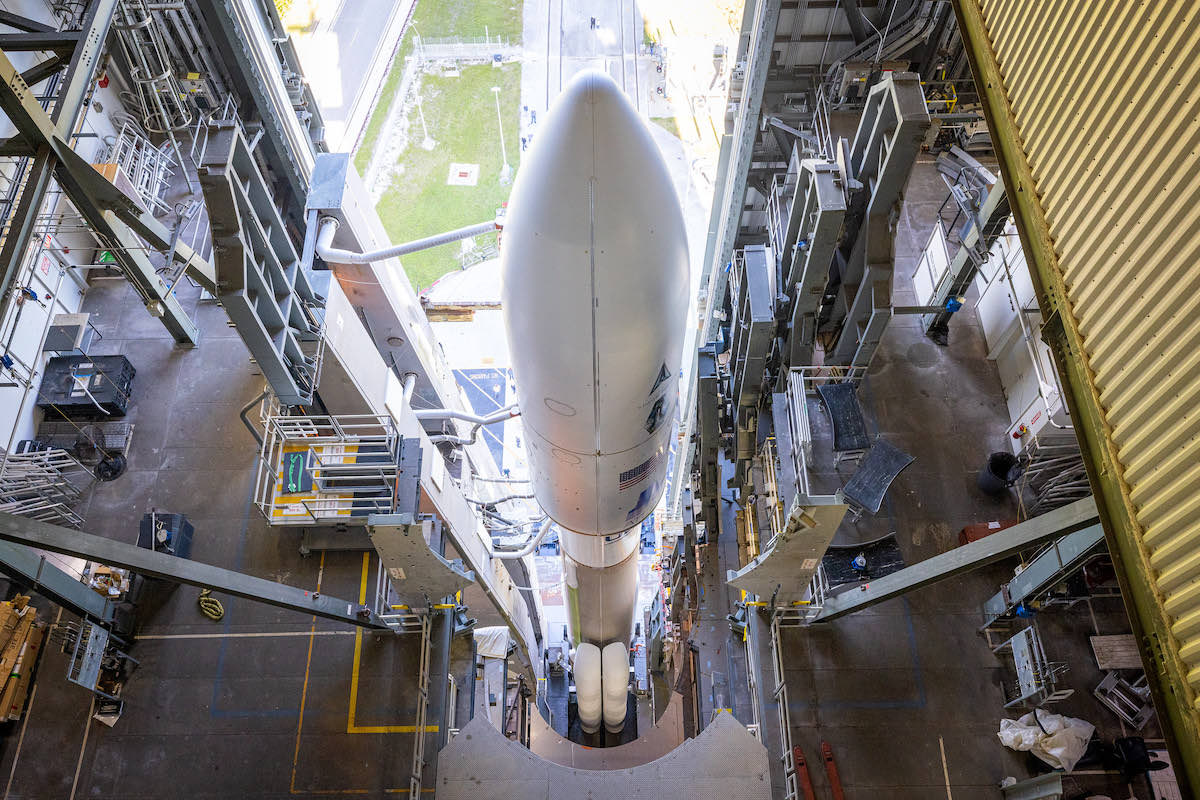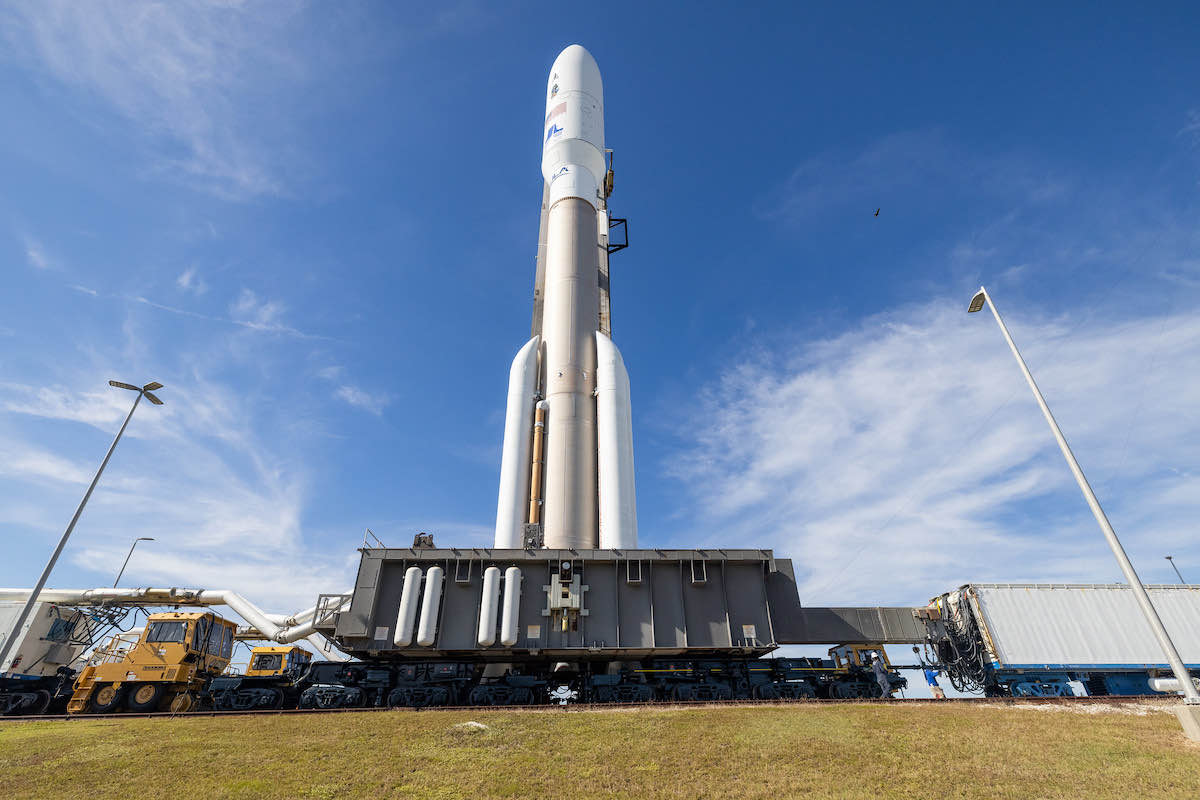United Launch Alliance rolled an Atlas 5 rocket to its launch pad Friday at Cape Canaveral in preparation for liftoff before dawn Sunday on a mission to carry two U.S. Space Force technology demonstration satellites into orbit.
The 196-foot-tall (59.7-meter) rocket emerged from ULA’s Vertical Integration Facility shortly before 12 p.m. EST (1700 GMT) Friday. The Atlas 5 rode its mobile launch platform along rail tracks for the 1,800-foot journey from the VIF to launch pad 41.
ULA confirmed the rocket reached the pad early Friday afternoon, then teams started preps to load the Atlas 5’s bronze-colored first stage with RP-1, a highly-refined, rocket-grade kerosene that will feed the Russian-made RD-180 main engine.
The Atlas 5 is set to launch the STP-3 mission for the military’s Space Test Program. Two technology demonstration satellites are mounted inside the Atlas 5’s 17.7-foot (5.4-meter) diameter nose cone, hosting payloads from NASA, the National Nuclear Security Administration, and the Space Force.
The Atlas 5 will release the two satellites directly into geosynchronous orbit more than 22,000 miles (nearly 36,000 kilometers) over the equator.
The launch will mark the 90th flight of an Atlas 5 rocket. The rocket — designated with tail number AV-093 — will fly in its “551” configuration with a 5-meter-diameter payload shroud, five solid rocket boosters, and a single-engine Centaur upper stage. This is the most powerful version of the Atlas 5 family, with 11 missions of the Atlas 5-551 rocket configuration to date.
The two-hour launch window opens at 4:04 a.m. EST (0904 GMT) Sunday.











Email the author.
Follow Stephen Clark on Twitter: @StephenClark1.
from Spaceflight Now https://ift.tt/3lBfStw
via World Space Info







0 comments:
Post a Comment